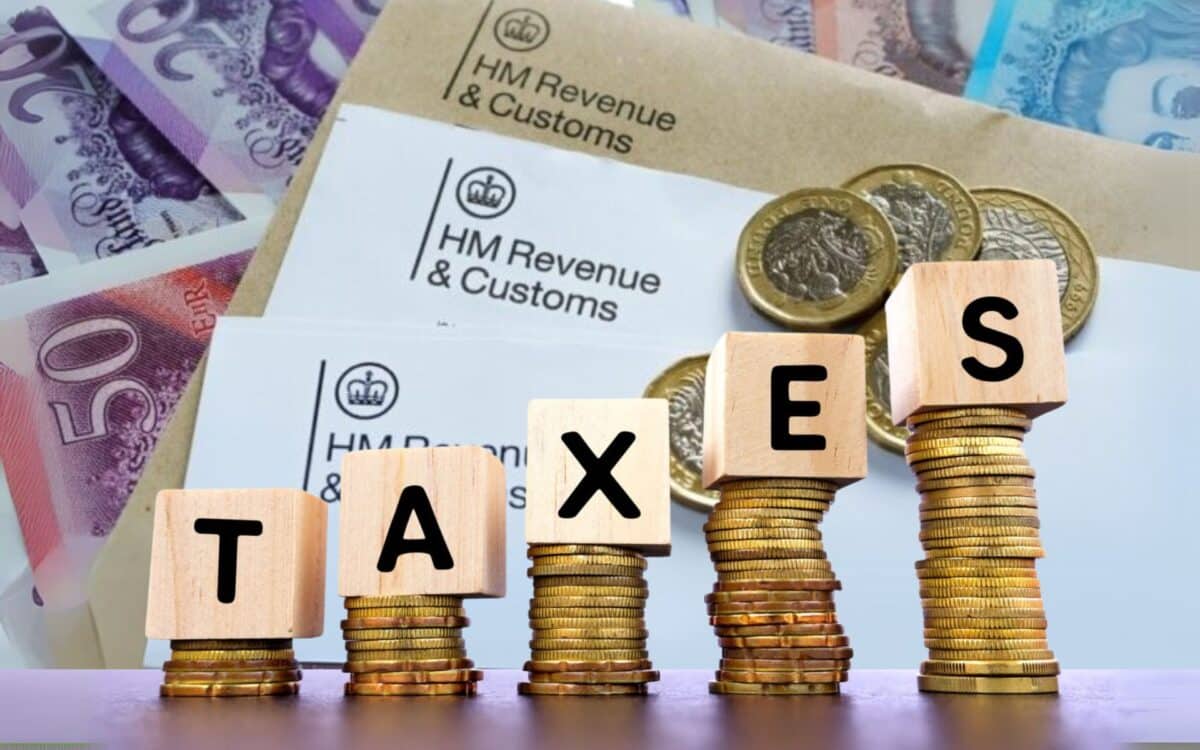Households across the UK are set to face financial difficulties in the coming year, with many families expected to see their disposable income drop significantly. Rising taxes, utility bills, and stagnant benefit increases are central to these concerns. The increase in tax rates, coupled with higher living costs, is expected to place further strain on already stretched household budgets.
According to The Epoch Times, the effects of long-standing freezes to tax thresholds and rising living costs are expected to push many working families into a more precarious financial position. The Resolution Foundation’s analysis sheds light on how these factors combine to create a challenging economic environment for low and middle-income households.
Rising Taxes and Utility Bills Contribute to Decreased Household Income
The Resolution Foundation’s report outlines how a combination of tax increases and utility bill hikes will reduce disposable income for typical households. Key changes include an increase in employers’ national insurance contributions, which have risen to 15%, and a reduction in the threshold at which these taxes kick in—from £9,100 to £5,000.
While these taxes are paid by employers,
The incidence of the tax is expected to fall primarily on workers – the foundation noted,
meaning workers will likely face slower wage growth as employers seek to recoup the higher costs. This is expected to result in a reduction of around £170 annually for many households.
Benefits Fail to Keep Up with Inflation
In addition to rising taxes, non-pensioner benefits are set to rise by just 1.7%, which is significantly below the inflation forecast of 3.2%.
Meaning that the real value of this income will fall this year – as stated by the Resolution Foundation.
The freeze on the Local Housing Allowance is another concerning development, with the foundation noting,
Even more worrying is that Local Housing Allowance will remain frozen, whereas a continued link to rents would have meant a typical 9 per cent boost (or an average of around £800 a year for two-bedroom properties).
This freeze will only exacerbate the financial burden for low-income households already struggling with higher housing costs.
On a more positive note, the minimum wage will rise by 6.7%—from £11.44 to £12.21 per hour—providing an estimated £1,400 increase for millions of workers. While this is seen as a critical support measure for low-income families, it still falls short of countering the broader rise in living costs that many households are facing.
Political Responses and Government Defense
In response to the report, a government spokesperson emphasised the broader growth in living standards, pointing to an increase in real household disposable income (RHDI) and the rise in the minimum wage.
Living standards, measured by the broader RHDI [real household disposable income] per capita measure, are growing at their fastest rate in two years – the spokesperson said
The government also defended its approach, stating,
We’re also putting more money into people’s pockets by boosting the minimum wage by up to £1,400 a year, freezing fuel duty, and protecting working people with no rise in their national insurance, income tax, or VAT.
However, the government’s approach has been criticised by some. In the House of Commons, Conservative Party leader Kemi Badenoch warned,
From Sunday, Labour’s job tax will mean that many British businesses face a terrible choice : cut wages, put up prices, or sack their staff. What is his advice to those businesses? – In response
Prime Minister Sir Keir Starmer rejected Badenoch’s assertion that households would be £3,500 worse off, calling this figure a “fantasy figure.” He emphasised that “wages are going up faster than prices,” and reiterated,
We’re dealing with global instability, and we recognise the pressures that are bearing down on businesses and individuals and working people, that’s why we’re rolling up our sleeves.
The Impact of ‘Awful April’ on Households
April has been dubbed ‘Awful April’ as multiple cost increases have come into effect. Alongside rising utility and council tax bills, the price of a TV licence has increased by £5 to £174.50 per year, while broadband and mobile phone costs are also expected to rise for many consumers.
Additionally, car tax has risen by £5 to £195, with electric vehicle owners now subject to car tax for the first time. With these multiple cost pressures affecting consumers, the financial outlook for many households remains uncertain.
As wages fail to keep pace with inflation and benefits remain below the level needed to support vulnerable groups, many families are facing an increasingly challenging economic climate.









